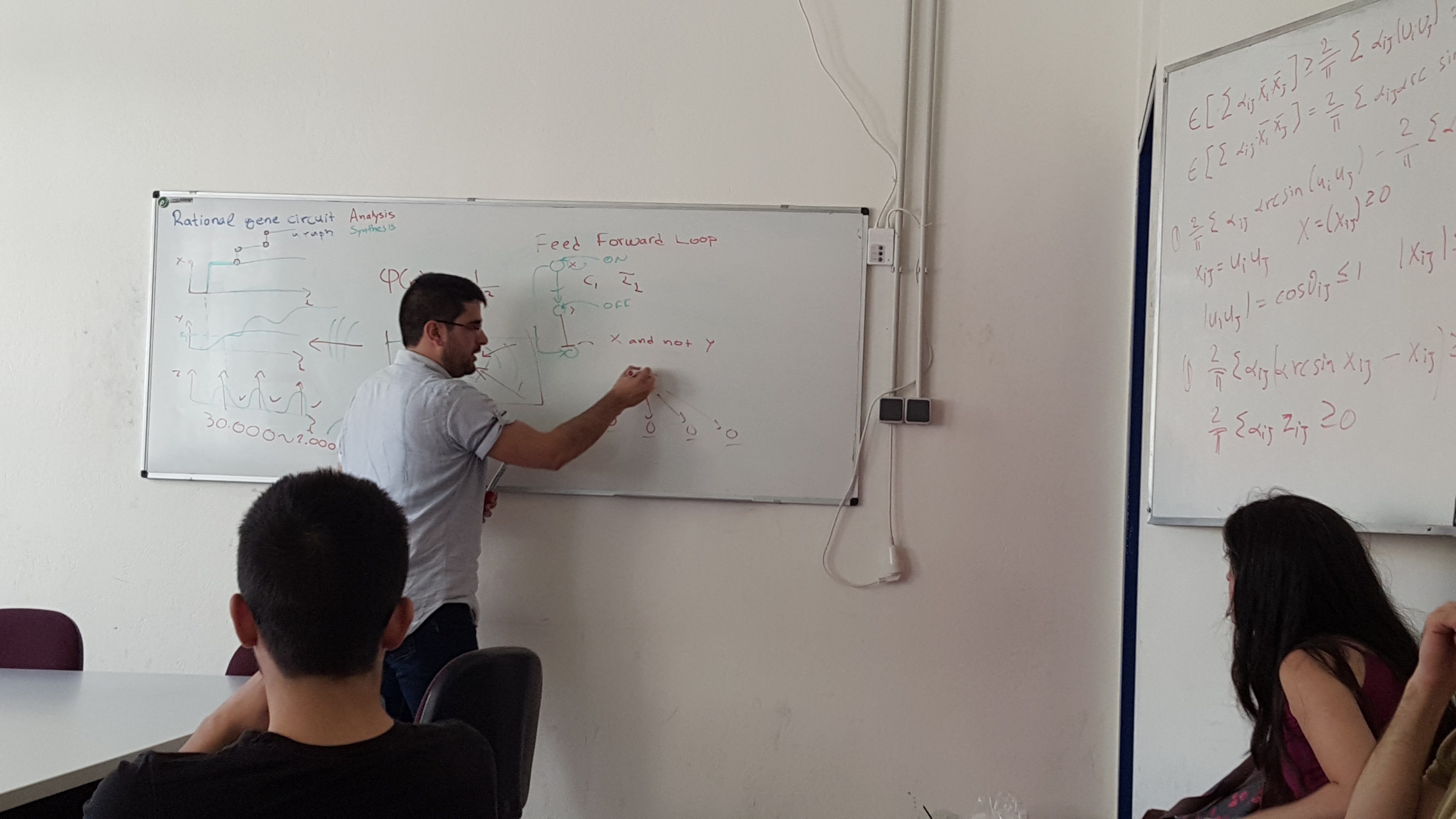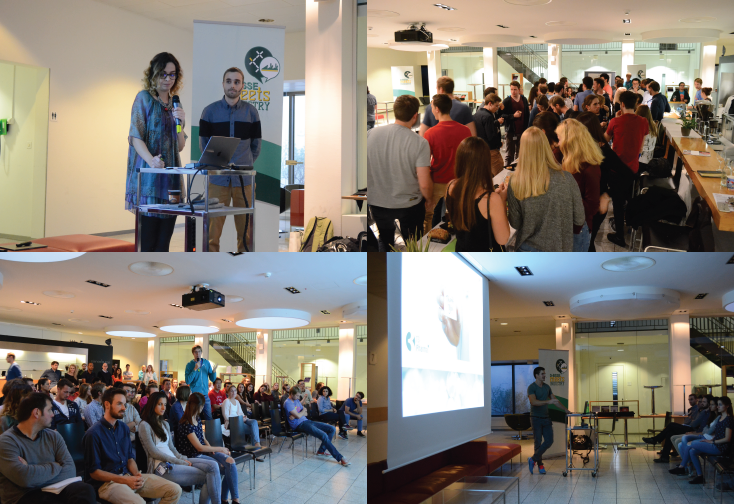
Promoting Synthetic Biology
Pitch at the ETH Student Project House

The student project house at ETH Zurich allows students from various backgrounds to follow own ideas and projects. They organize pitching events where students can present their ideas and connect with other students with similar interests. Due to the generally high demand of time and resources, life science projects have not yet been in the focus there.
We wanted to change that. To do so, we went there to present one of our earlier ideas. This way, we introduced a bunch of mechanical engineers, computer scientists and other students from ETH Zurich to the world of synthetic biology. Afterwards, we passed on our own experiences with a student-led life scientific project to the SPH-manager.
Talk at NTU Athens
Building reliable networks out of simple, well-characterised components is an engineer's daily work. Synthetic Biology is no different in this aspect; it appears that nature favours reuse of elementary biological mechanisms in all kinds of systems. Systematic research has revealed a number of reasons why some biological cirtuits are more abundant than others, namely efficiency and robustness to parameter variation. [1] Such principles are universal in the world of technology and should be accessible to engineering students who had little or no prior exposure to biology.
We thus travelled to the School of Electric and Computer Engineering at the National Technical University of Athens (where Nikolaos graduated from) and attempted to introduce about 20 master students of Computer Science to elementary principles of regulatory gene networks.

We introduced ourselves, and gave a brief talk presenting the current state of bacterial cancer therapy, using CATE as a concrete example, albeit still experimental. While presenting our project, we explained how Synthetic Biology can be employed to create biological AND gates that "sense" and conditionally respond to their environment. In particular, we outlined the crucial role such high-level bio-bricks play in our project, and described our efforts to engineer them to suit our needs (e.g. using a Lactate/AHL AND-gate to increase specificity, and use a heat-deactivated repressor to remote-controll cell lysis).
Finally, we mentioned the repercussions of big-data revolution. Indeed, one can find more data in Biology than in any other discipline known to man. [2] Computer-assisted statistical analysis is gaining importance in modern biology and thus academic and entrepreneurial opportunities in SynBio are increasing for engineering graduates.
Talk by T3 Pharma CEO Simon Ittig and Us
While doing an interview with Dr. Simon Ittig we came to realize that bacterial cancer therapy, combined with synthetic biology, is not only a possible new treatment approach but also commercially interesting. We therefore asked him to come to our department to explain the technology as well as talk about how to build your own startup. He agreed and gave an insightful and interesting talk to a range of scientists from our department and also other universities.

The talk was followed by an apero at which new connections between industry and academia have been formed. For this event, we worked together with D-BSSE meets industry who have a lot of experience with such events. We made further use of the occasion and introduced ourselves and our idea to the audience. This way we made sure that the scientists at our department know of iGEM and what this years team is doing.
References
- Alon, Uri. An Introduction to Systems Biology: Design Principles of Biological Circuits. CRC Press: 2006
- Stephens, Zachary D., et al. "Big data: astronomical or genomical?." PLoS biology 13.7 (2015): e1002195. doi: 10.1371/journal.pbio.1002195

